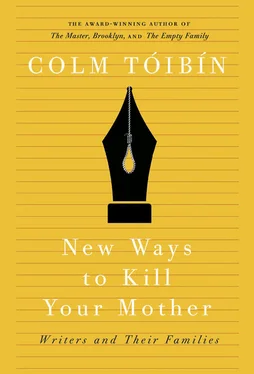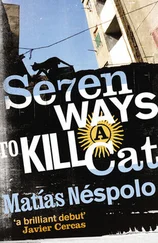I hear that they are showing Frohman one play of mine, ‘Riders’, five or six of L.G.’s [Lady Gregory’s] and several of Yeats. I am raging about it, though of course you must not breathe a word about it. I suppose after the P. B. [Playboy] fuss they are afraid of stirring up the Irish Americans if they take me. However I am going to find out what is at the bottom of it and if I am not getting fair play I’ll withdraw my plays from both tours English and American altogether. It is getting past a joke the way they are treating me.
They, on the other hand, became increasingly sure that they had invented him. After his death Lady Gregory wrote to Yeats:
You did more than anyone for him, you gave him a means of expression. You have given me mine, but I should have found something else to do, though not anything coming near this, but I don’t think Synge would have done anything but drift but for you and the theatre… I think you and I supplied him with vitality when he was with us as the wild people did in the Blaskets [which Synge also visited].
Synge’s relationship to the islands of the west, however, came to him via his family as much as it did from Yeats’s inspiration. As soon as he arrived on the Aran Islands in 1898, for example, he wrote to his mother, who wrote to his brother Sam:
I had a very interesting letter from Johnnie last week… The islanders of Aran found out that he was related to Uncle Aleck and came to see him and were quite pleased. He is now on Inishmaan island — went there in a curragh and is much pleased with his new abode, a room in a cottage inside the kitchen of a house… and he lives on mackerel and eggs and learns Irish; how wonderfully he accommodates himself to his various surroundings.
And parts of his vitality came to him from his mother as much as anyone else. When he returned to Dublin from the Aran Islands he accommodated himself to his mother’s surroundings once more, joining her on holiday in County Wicklow. He would return to the family from his daily outings by foot or bicycle with stories of tramps he had met, including one who claimed to have known his grandmother and who had told him: ‘I never went there but Mrs Synge offered me a glass of whisky.’ Later, when the young Edward Stephens mentioned the tramp to Synge’s mother, she remarked: ‘I wish Uncle Johnnie would not encourage tramps; I don’t know why he wants to talk to queer people. I’m sure that Mrs Synge never offered a tramp whisky.’
Once the summer was over, Synge followed his usual routine, returning to Paris for the winter. The following year, when he returned to Ireland for the annual long holiday with his mother in Wicklow, his mother had two young women, both interested in evangelical Protestantism, staying. Synge became close to them. His mother wrote: ‘Both girls are very lively and there is a great deal of joking and fun goes on between them and John. I have not seen him laugh so much for years.’ Edward Stephens remembered: ‘John had learned to enjoy their company so much that he never withdrew to read in his room when he had an opportunity of sitting with them on the steps looking at the view or, on wet days, on camp stools in the porch looking into the mist that hid everything but the tops of the trees below the house.’
In September Synge returned to the islands and then in November to Paris, where he began to write his book about the Aran Islands. In May 1900 he returned once more not to miss his three months in Wicklow with his mother, who once more had invited young women, including one Rosie Calthrop, to stay and keep her son company, much to his delight. His mother, however, became jealous that summer of her son paying more attention to another woman than to her. She was not, it seems, content to play the Widow Quin to her guest’s Pegeen Mike. She wrote to Sam:
She seemed to appreciate Johnnie’s thoughtfulness and kindness very much! It is a pity he does not show it to me and not only to strangers. He was most attentive to both in little matters I could see, and he was always at their beck and call to walk or ride or escort them anywhere! So no wonder they like him, but it was rather aggravating to me; he wanted to put me aside entirely. But I told Rosie and then she did not fall in with his plans, though she loved to be out walking with him I know.
The idea of Mrs Synge telling her guest that she was jealous of her son’s attention to the guest is intriguing. It is hard to imagine what terms she used to make herself clear. It is also possible that the guest was forced to explain to Synge what the problem was, that the older woman was aggravated by his sudden success with strangers, his charm. Thus it is possible a central part of the action of The Playboy of the Western World was being played out in a rented house in Wicklow in the summer of 1900.
That September Synge set out again to charm strangers by returning to the Aran Islands. This was his third visit. He arrived in a particular state of gloom because Cherrie Matheson had been receiving a gentleman whom she would later marry. They had met on the street and Cherrie had introduced her new boyfriend to Synge. The following month when he returned, this visit having sown the seeds that would become Riders to the Sea , his mother wrote to Sam:
Johnnie came home last night from the Aran Islands. He has one very large gland on his neck just above his collar; he looks very well and the time on the islands agreed with him. I was glad to have him safe back. The sea has been very rough and great gales lately and it was hard for him to get away. He had a very rough passage to Galway and a miserable little steamer. The engines stopped several times and went on again.
That autumn Synge bought a portable typewriter, a Blickensderfer, which Richard Best chose for him. It came in a varnished wooden case. When he brought it home, he said that it spelt worse than he did. When he went back to Paris, his mother missed him. She wrote to Sam:
My poor Johnnie went off this morning; it is very calm, I am thankful to say, but raining and thick at sea… I miss Johnnie. As usual I have been very busy stitching and mending his clothes and getting him some new ones. The gland on his neck is very large, but back pretty far. He is getting rather anxious about it. I think he is improved; he has been more pleasant and chatty than usual of late, and I think his queer time in Paris always injures him, and he is so queer when he comes home and so out of all our ways, and then it wears off by degrees. I am trying to persuade him to give up his room in Paris and make a fresh start nearer home.
The gland in his neck was still swollen when he returned at the beginning of the summer; when he saw the doctor in Dublin he was given an ointment and a different medicine. His mother invited Rosie Calthrop to stay with them once more and wrote to Sam about the amount of money Synge and Rosie had spent on an outing. ‘John does not mind at all,’ she wrote, ‘of course it is my money and he has no scruples about that. However, I don’t mind now and then, but I would not like it often.’ Synge had his typewriter with him and was working on the first draft of a play When the Moon Has Set , which dealt with his own class and was thinly disguised autobiography. He brought it with him when he went to stay at Coole but Lady Gregory told him that it was not good and of no literary interest. From Coole he went west to the islands and then back to Paris. That May of 1902 he was asked to review Lady Gregory’s Cuchulain of Muirthemne , in which a version of the dialect spoken around Coole was used. Synge found this dialect close to the living speech he knew from rural Wicklow. In his review he described the language as ‘wonderfully simple and powerful… almost Elizabethan’. The Elizabethan vocabulary, he wrote,
Читать дальше












